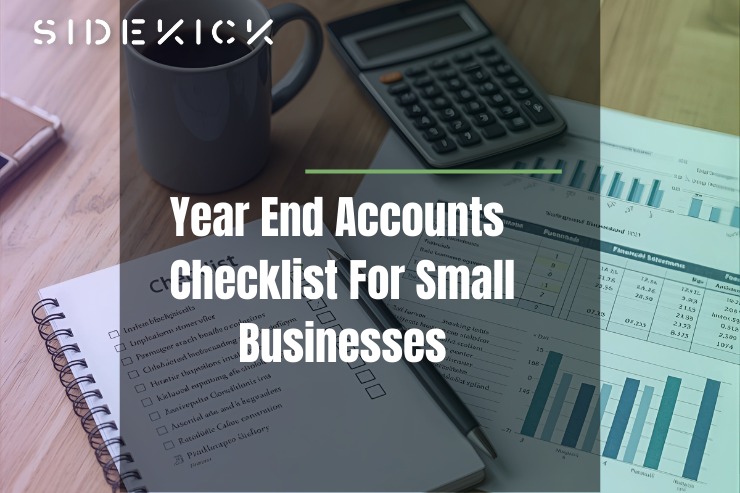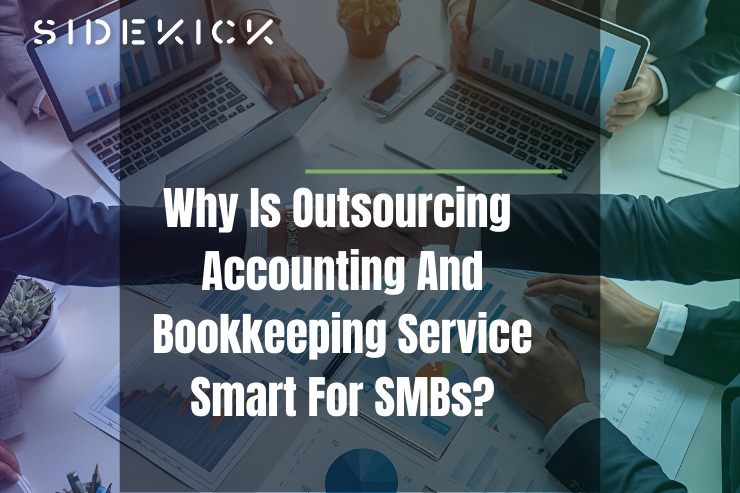As year-end approaches, small businesses need to prioritize year-end accounting procedures to make sure that they are in compliance with any tax requirements, have accurate financial statements, and have prepared a ground for a successful new year. The most effective method to keep everything on track and avert a last-minute rush is to have a complete accounts checklist. A year-end accounts checklist will help small business owners to focus on all the major accounting tasks and confirm that all the necessary financial activities are met and done correctly on time. This blog will cover the key requirements and issues to consider when going through your year-end accounts process so that you can do your year-end accounts function with ease.
Why is an Accounts Checklist Necessary?
An accounts checklist is a crucial instrument that guides you in sorting out all the areas of financial health of the business in an organized manner. Keeping the accounting tasks up to date not only helps small businesses to remain compliant with tax requirements, but it also gives a more accurate reflection of the financial health of the company. As a small business owner, it is essential to have a reliable way to end the year and prepare for the following year. The following checklist enables you to know the important activities and the deadlines so that you can effectively close your books at year end.
1. Reconcile your bank statements
The initial step in any management accounts checklist is bank account reconciliation. Go through your accounts and ensure that every single transaction is recorded correctly before you finalize your annual accounts. These involve checking all withdrawals, deposits, and payments made to confirm that there are no differences on your bank statement and on your records. This activity will help you identify any possible mistakes, duplicate payments or fraud before it escalates.
2. Accounts receivable and payable
As you approach the end of the year, it is important to examine the accounts receivable (money owed to you) and accounts payable (money you owe). Ensure that all due invoices are followed up and paid up. Meanwhile, clear any overdue bills to save late charges or fines. It is also crucial to make adjustments in case of any bad debts or uncollectible amounts, as it will affect your year-end accounting close checklist.
3. Tax preparation
A key part of your year-end accounts checklist is to get your accounts ready to file your taxes. Make sure that all your expenses are accounted for and your income statements are correct. Small businesses also need to check any tax credits or tax deductions that they may be entitled to, like business expenses, depreciation of their assets, or research and development credits. Additionally, individuals or business owners having substantial assets may also need to make wealth statement, reporting their total assets and liabilities for tax purposes. The documentation to file taxes should include:
- Income statement
- Balance sheets
- Wealth statement
- Statements of profit and loss
- Tax forms and expense receipts
By going through these documents beforehand, you will not have to rush to fill in at the last minute, and you will also be less likely to make mistakes in your tax statement.
4. Inventory check
To businesses that deal with physical products, an inventory check is vital in ensuring that your annual accounts portray the actual value of the goods in-store. When closing your annual accounting process, you should count your inventory, compare it to what you have in the accounting record, and correct the record to ensure there is no discrepancy. Any discrepancy should be clarified and sorted out. Along with the physical count, you must also take into consideration the obsolete or damaged inventory and write off the remaining items that cannot be sold anymore. Not only will this process assist you in making sure you comply with the accounting standards, but also ensure that your balance sheet is accurate and up to date.
5. Adjust and review depreciation
Depreciation is a major accounting element, particularly in cases of businesses that have a considerable amount of assets. Review the depreciation schedules of your fixed assets and make sure all calculations are correct. Adjust depreciation to reflect the actual value of your assets. This is a crucial step that should be considered in your management accounts checklist because miscalculated depreciation can give inaccurate financial statements and influence tax liabilities. Furthermore, it is necessary to write off some of the assets, particularly if they are no longer useful or have lost their value.
6. Prepare financial statements
Your year-end accounts checklist should include a finalization of the financial statements. This involves the preparation of your balance sheet, income statement, and cash flow statement. These documents reflect the financial health and performance of your company and are fundamental in tax filing, obtain financing, or make reports to stakeholders.
7. Conduct an audit
Year-end is the right time to prepare businesses that have to be audited. Perform an internal audit to examine your financial accounts and ensure that there are no discrepancies, errors, or inconsistencies. The review of your financials is the assurance that the auditors will not lack any information in authenticating your accounts. Additionally, undertaking an internal review can highlight where you need to improve in terms of financial management or compliance, before the start of a formal auditing process
8. Plan for the following year
As you concentrate on the year-end closing, it is prudent that you start to plan for the coming year. Examine the financial position of your company, objectives, and business issues of the new year. This information will assist you in setting realistic budgets, managing cash flow and finding potential financial opportunities. Developing a year-end accounting close checklist for the coming year will help you start the year with clear financial objectives.
9. Assess employee compensation and incentives
Another significant part of your annual accounting close is employee compensation and benefits. Review your employee salaries, bonuses and other forms of compensation provided during the year. Make sure that you are in compliance with tax laws in relation to benefits and deductions. Make sure that contributions into the retirement plans or insurance provided by your business are accounted and outstanding payments are made before the end of the year.
10. Consult Sidekick for expert opinion
The decision to partner with a professional at Sidekick would be wise to ensure that the year-end accounting is in order. Sidekick’s expert team will be able to review year-end accounting checklist, pinpoint any potential problems, and offer solutions for improving financial procedures in the future. With Sidekick outsourced accounting services, it will be much easier to handle business accounting, and also take a more focused and organized approach to achieve long-term success.
Conclusion
The accounts checklist proves to be an essential guide when it comes to small business in the year-end accounts period. Use the year-end accounts checklist to make sure that your company’s financial records are correct, tax-compliant, and ready to start another year. Reconciliation of accounts, review of tax filing, checking inventory, and finalizing financial statements are all important steps to maintaining a healthy financial position.



